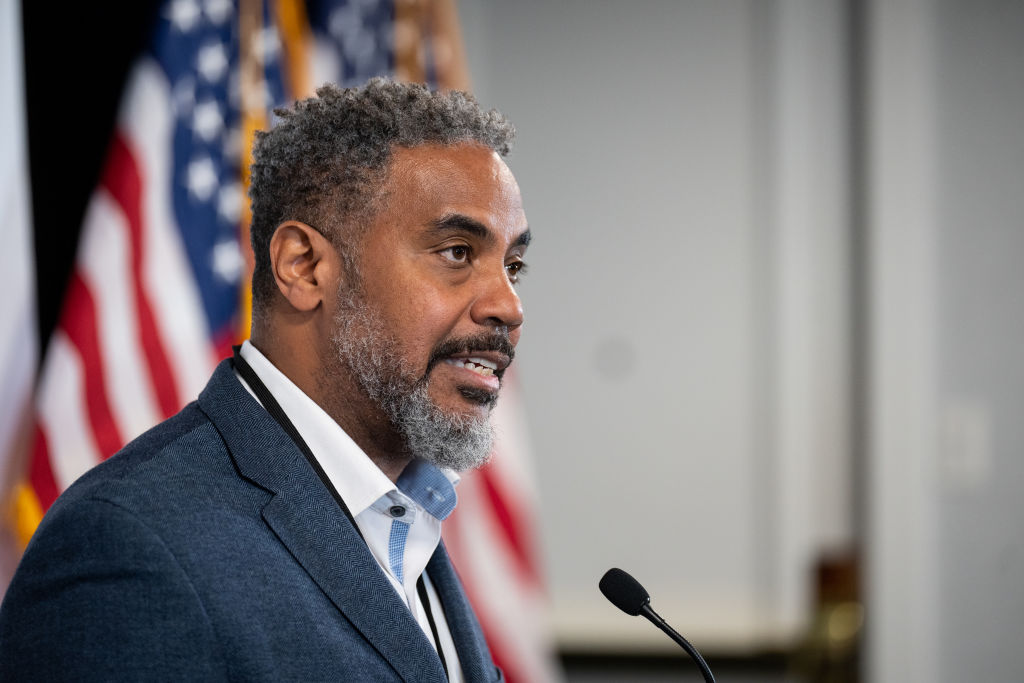
March 24, 2024
Congressional Black Caucus Introduces Resolution Targeting Racial Wealth Gap
The resolution highlights policies historically keeping Black Americans from building wealth.
The Congressional Black Caucus announced a resolution on March 21 aimed at ending the racial wealth gap. The resolution highlights policies historically keeping Black Americans from building wealth before suggesting policy solutions to address those ills.
As The Hill reports, the bill aims primarily at housing, entrepreneurship, employment, tax equity, and voting rights, which the Caucus leadership believes is imperative for building a Democratic House majority focused on Black economic empowerment.
Rep. Steven Horsford (D-NV) told members of the Black press during a February meeting, “Our goal is simple: We want to create a Day One Agenda for the next Congress focused on Black economic creation for the start of a Democratic House majority.”
Horsford continued, “The Congressional Black Caucus will be in a position to advance an agenda that can move through the House, through the Senate, and signed by the President of the United States, one that addresses racial equity and the racial wealth gap, but also tackles some of these major issues.”
Rep. Joyce Beatty (D-OH), who helped draft the resolution, stated in the press release that the Caucus should address long-standing economic issues affecting Black Americans.
“Economic disparities continue to plague this country. We see it in unequal access to capital, appraisal bias, overrepresentation in minimum wage jobs, and constant barriers to wealth-building opportunities, to name just a few,” Beatty said. “While conservative activists seek to undo our recent gains, the Congressional Black Caucus stands united in the fight for equity, justice, and prosperity for every American. We know that when Black America succeeds, America succeeds.”
The plan is based on the Black Economic Alliance Foundation report, “Policy Agenda to Advance Black Work, Wages and Wealth” which points out that white Americans have an average wealth per capita of $284,310 compared to a figure of $44,100 for Black Americans.
In 2020, William “Sandy” Darity and A. Kirsten Mullen argued in a commentary on reparations and the racial wealth gap for Brookings that the racial wealth gap is based on the unmet promise of reparations. They also traced a lack of policy aimed at rectifying the racial wealth gap from Reconstruction to the 20th Century in their commentary.
“The origins of this gulf in Black and white wealth stem from the immediate aftermath of slavery when a promise made to provide the formerly enslaved with 40 acres in land grants went unmet—while many white Americans were provided substantial ‘hand outs’ (typically 160 acres) of land in the West,” they wrote.
Rep. Glenn Ivey, (D-MD) who helped draft the legislation, stated in the press release that Black American prosperity is good for everyone.
“From education to entrepreneurial opportunity, from equity in housing and healthcare to equal treatment at the ballot box and at the bank, Black wealth creation must build upon the solid foundation that what’s good for our Black communities is ultimately good for the American economy, American society, and America at large.”
The Black Economic Alliance President/CEO Samantha Tweedy communicated via the press release that her organization looks forward to working with the CBC. “We share these leaders’ commitment to community-informed, data-driven steps to move economic opportunity for Black Americans to the forefront of our nation’s agenda.”
RELATED CONTENT: Congressional Black Caucus Supports Defense Secretary Despite Calls For Resignation